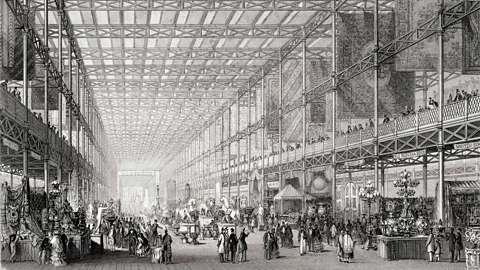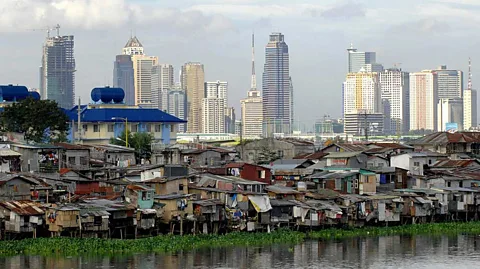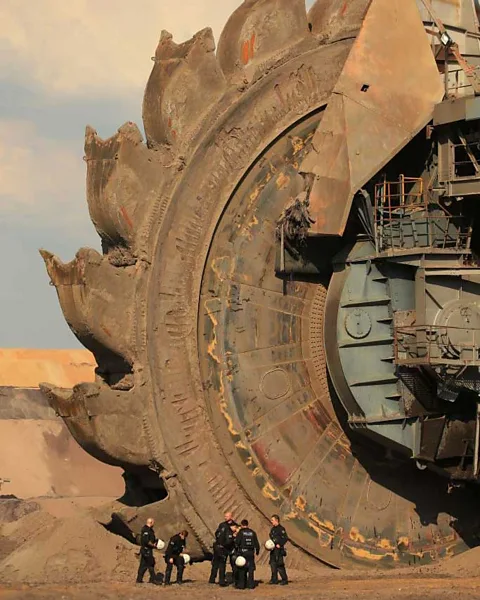风萧萧_Frank
以文会友资本主义的演变 :下一个阶段会是什么样
Why the next stage of capitalism is coming
将近 250 年前,经济学家和哲学家亚当·斯密 (Adam Smith) 写了《国富论》,书中描述了一种全新的人类活动形式的诞生:工业资本主义,其结果将是他和他的同时代人无法想象的财富积累。
资本主义推动了工业、技术和绿色革命,重塑了自然世界,改变了国家在社会中的角色。在过去两个世纪中,它使无数人摆脱了贫困,显著提高了生活水平,并带来了从根本上改善人类福祉的创新,并使登月和在互联网上阅读本文成为可能。
然而,这个故事中也有阴暗面。近年来资本主义的缺点越来越明显。个人短期利益优先,有时意味着社会和环境的长期福祉受损——尤其是在新冠大流行和气候变化挑战全球之际。世界各地的政局动荡和社会两极分化表明,对现状的不满日益加剧。营销和公关公司爱德曼(Edelman)2020 年一项调查结果显示,全球 57% 的人认为“今天的资本主义对世界弊大于利”。
事实上,如果你用不平等和环境破坏等标准来衡量,“西方资本主义近几十年的表现一直存在严重问题”,经济学家迈克尔·雅各布斯(Michael Jacobs)和玛丽安娜·马祖卡托(Mariana Mazzucato)在他们合著的《重新思考资本主义》(Rethinking Capitalism)一书中写道。
不过,这并不意味着没有解决方案。 雅各布斯和马祖卡托认为,“西方资本主义未必注定要失败,但确实需要对它重新思考”。
那么,我们心目中的资本主义会继续以当前的状态一直存在吗?它是否可能?
它为人类福祉贡献良多,但远非完美。我们所理解、知道的资本主义会长久保持现状吗?抑或有另一种未来,演变成新的状态?

资本主义的过去
围绕资本主义这个主题的书籍和文字已经汗牛充栋,所以对它的研究难以面面俱到。但我们能够做到的是根据资本主义的兴起来探索、预测它未来的发展方向。显然,资本主义并不始终像今天这样运作,尤其是在西方。
在 9 - 15 世纪,西方处于专制君主制和教会统治之下。随着人们争取个人自由权益的势头逐渐增强,这类体制开始衰败,而这种状况催生了一种更注重个人取向的经济制度 —— 资本主义,因为它允许私有财产权、个人选择、企业家精神和有利于创新的灵活性。它还支持注重个人政治自由的民主作为治理体系、社会制度。
这种向更大的个人自由转变的潮流改变了社会契约。以前,许多资源(土地、食物和保护)由当权者提供,以换取公民的重大贡献(例如,奴工、低薪苦役、高税赋和绝对的忠诚)。在资本主义下,人们降低对执政当局的期望,以求换取更大的公民自由,包括个人、政治和经济自由。

20世纪的资本主义
然而,资本主义在接下来的几个世纪里将发生重大变化——尤其是在 20 世纪下半叶。第二次世界大战后,经济政策智囊团朝圣山学社(Mont Pelerin Society)成立,其宗旨是应对西方面临的挑战,重点放在捍卫开放社会、法治、言论自由和自由市场经济政策的政治价值观;这些构成了古典自由主义的核心原则。
古典自由主义最终催生了“供给学派”。这是一种经济学理念,即减税和对自由市场监管最小化能够带来最大限度的经济增长,从而提高所有人的生活水平。在 1980 年代,政治上新兴的新自由主义和经济上的供给学派一同在美国和许多欧洲国家被奉为优先。
这种新出现的资本主义压力推动了全球经济加速增长,也使许多人摆脱了绝对贫困。但与此同时,批评者指出,对于诸如整修破败的公共基础设施、改善教育和降低健康风险之类公共服务领域的政治投资,减税和放松商业监管等信条并没有起什么作用。
也许,最重要的是, 20 世纪后期资本主义在许多发达国家导致了贫富两极之间的财富差距,这个贫富差距的衡量指标是基尼系数。有些国家的贫富差距不断扩大,美国的情况尤其明显。
自 1980 年以来,美国最贫穷的人实际收入没有增长,而处于顶层的超级富豪收入每年增长约 6%。世界上最富有的亿万富翁几乎都生活在美国,他们积累了惊人的财富,而与此同时,自世纪之交以来,美国家庭收入中位数仅仅略有上升。

贫富差距的影响可能超过一些政客和企业精英愿意相信的程度。加利福尼亚州立大学富勒顿分校经济学教授丹尼斯·斯坦利(Denise Stanley)说,资本主义可能使全世界数百万人摆脱了绝对贫困,但不平等可能会腐蚀社会。
她解释说,“绝对贫困的意思是普通人……每人每天有 4 美元收入。这是个门槛”,但从长远来看,相对贫困会导致社会失衡。即使经济持续增长,收入不平等和工资增长的停滞也会使人们缺乏安全感,因为这会导致他们在经济生活中的相对地位下降。
行为经济学家已经表明,“与其他人相比,我们的社会地位、我们的幸福感更多来自于相对度量和财富分配,而不是绝对度量。如果这个论断正确,那么资本主义就有问题,”斯坦利说。
根据爱德曼报告(Edelman report),不平等加剧导致“人们对机构的信任度降低,并体验到不公正感”,而对人们生活可能产生更深的影响。经济学家安妮·凯斯(Anne Case)和安格斯·迪顿爵士(Sir Angus Deaton)在他们合著的《绝望之死和资本主义的未来》一书中指出,当前形态的资本主义正在摧毁工人阶级许多人的生活。他们写道,“在过去二十年里,因自杀、吸毒过量和酗酒导致的绝望死亡人数急剧上升,现在每年夺去数十万美国人的生命”。
2007-2008 年的金融危机加深了这些问题。这场危机是由过度放松管制引发的,对发达国家劳工阶层的打击尤其严重。美国消费者金融保护局 (CFPB) 第一任主任理查德·科德雷 (Richard Cordray) 表示,危机爆发后政府对大银行的救助引发了不满,“助长了我们在过去十年中目睹的……政治两极化的兴起”。他是《守门人:通过保护消费者来拯救我们的家庭、经济和民主》一书作者。

21世纪的资本主义
自由民主制度目前可能正处于一个转折点;放眼全球,公民正在以更强的政治力度挑战现有资本主义规范。
例如,纽约长岛大学政治学教授J·帕特利斯·麦克谢利( J Patrice McSherry)在智利观察到这种变化。她说: “社会动员始于 2019 年 10 月地铁票价的上涨,引发了广泛的抗议活动,吸引了 100多 万人参加示威活动。”
“智利的社会运动暴露了愤懑不满的深层根源:根深蒂固且日益严重的不平等、不断上涨的生活成本,以及这个世界上最新的自由主义国家之一的极端私有化。”
这些不满可以追溯到 20 世纪后期,当时智利的威权政府尝试宪法改革,以此“将独裁统治的经济和政治统治制度化,确立了一个将国家在社会和经济领域中的作用消除殆尽的新自由主义框架。它限制政治参与,赋予了[政治]权利不成比例的权力,并为武装部队设置了监护人的角色,”麦克谢利在为非营利组织“北美洲拉丁大会”撰写的一篇文章中指出;该组织追踪拉美地区的时局动态。
同样,2018 年法国兴起的“黄背心”运动最初的导火线是通勤者燃料成本上涨,但迅速扩大到类似于智利的社会怨怼、生活成本上涨、日益加剧的不平等,以及敦促政府不再无视普通市民需求等诉求。
在美国,催生特朗普主义的政治运动可以说是由经济不平等和意识形态推动的。在那些因全球化而沦为输家的选民中,特朗普政府更封闭的贸易政策赢得了广泛的政治支持,包括退出跨太平洋伙伴关系协定,以及对进口到中国、印度、巴西和阿根廷的商品和服务征收报复性关税。甚至连欧洲、加拿大和墨西哥等美国的传统盟友也未能幸免,成为这一议程所针对的目标。

德国Baker McKenzie 国际贸易业务负责人、世界经济论坛全球青年领袖阿纳希塔·汤姆斯(Anahita Thoms)说,虽然对当前形式的资本主义不利因素的一种反应是各国采取防御姿态,寻求通过尽量减少外部联系来保护自己,但保护主义“是短视的,尤其在贸易领域”。
“虽然它可能带来一些暂时的好处,但从长远来看,它会危及整个全球经济,并有可能破坏数十年的经济进步。保持对投资友好的开放市场至关重要,”汤姆斯说。
政府在21 世纪面临的一个核心挑战是如何在全球贸易的长期利益和全球化导致的低工资或失业对社区造成的短期损害之间取得平衡。民主制度下,经济无法完全脱离求职、经济适用房、教育、医疗保健和清洁环境等大多数人的需求。正如智利、黄背心和特朗普主义运动所显示的那样,许多人要求改变现有制度,以满足这些需求,而不仅仅是谋求更多私人利益。
总而言之,也许到了重新思考资本主义的社会契约的时候了——只有这样它才能更加包容超越个人权利和自由的更广泛的利益。这并非没有可能。资本主义过去曾经历过演变,为了能延续至更长久的未来,它可以继续演变。
资本主义的未来
近年来,出现了各种旨在改写资本主义社会契约的想法和建议。它们有一个共同点,即企业的成功需要更多元的衡量标准,而不单是利润和增长。

在商业领域,所谓“合乎道义”的品牌衍生出“自觉资本主义”(Conscious Capitalism);在政策方面,英格兰银行和梵蒂冈都提倡“包容性资本主义”(Inclusive Capitalism),主张利用“资本主义向善”;在可持续性方面,有“甜甜圈经济学”概念,这是经济学家和作家凯特·拉沃斯(Kate Raworth)提出的一个理论,认为可以在不突破社会和地球环境界限的同时保持经济的繁荣增长。
还有乔纳森·波里特(Jonathan Porritt)在《把世界当真的资本主义》(Capitalism As If The World Matters)一书中提出的“五种资本”模式:他主张将人力资本的五个支柱 —— 自然、人力、社会、制造和金融 —— 整合到现有的经济模型中。
企业开始接受“五种资本”,一个具体例子是 “B 公司运动”(B-Corporation Movement)。获得认证的公司签约承担法律义务,承诺在决策时要考虑“他们的决定对公司员工、客户、供应商、社区和环境的影响”。已经加入这个行列的大公司包括达能、巴塔哥尼亚和 Ben & Jerry's(由联合利华拥有)等。
这种方式正在成为主流。2019 年,180 多家企业的首席行政官发布重新定义企业宗旨的声明。沃尔玛、苹果、摩根大通、百事可乐等大公司 CEO 首次承认,必须重新定义企业在社会和环境中的角色。
声明说,企业必须承担的责任不仅仅是为股东带来利润,还必须投资于员工,并为推动波立特资本模型中的人力、自然和社会要素的改善做出贡献,而不只是盯着金融资本。
百思买(Best Buy)执行董事长休伯特·乔利(Hubert Joly)在接受雅虎财经关于资本主义未来的采访时说:“从 1980 年代到 2010 年这30 年里,我们始终只盯着利润这个唯一的焦点,过度的关注并由此带来了很多这些问题。如果能对工商业加以重建,就有可能重建资本主义......我认为这是可以做到的,也必须做到。”

未来方向
三十多年前,联合国布伦特兰委员会(Brundtland Commission)在题为《我们共同的未来》报告中写道,有充分证据表明社会和环境影响是相关的,需要纳入发展模式。显然,这些问题也必须在支撑资本主义的社会契约中加以考虑,以使其更具包容性、整体性,并与基本的人类价值观相结合。
归根结底,应该记住一点,资本主义自由民主国家的公民并非束手无策,无能为力。作为一个集体,他们可以支持与自己信念相符的公司,并不断要求新的法律和政策以推动公司竞争格局的改变,从而促使它们改进自己的业务行为。
当亚当·斯密在 1776 年研究新生的工业资本主义时,尚无法预见它将在多大程度上改变我们今天的社会。因此,我们可能同样无法预见两个世纪之后的资本主义会是什么样子。
但这并不意味着我们不应该问这个问题:资本主义如何能够在短时间内进化得更好。资本主义和我们所在星球的未来取决于它。
本文作者马修·威尔彭·金(Matthew Wilburn King)是美国科罗拉多州博尔德的一名国际事务顾问,环保主义者,也是 Common Foundation 总裁兼董事会主席。
Why the next stage of capitalism is coming
It's done so much for human well-being, but it's far from perfect. Will capitalism as we know it evolve into something new?
Nearly 250 years ago, the economist and philosopher Adam Smith wrote The Wealth of Nations, in which he described the birth of a new form of human activity: industrial capitalism. It would lead to the accumulation of wealth beyond anything that he and his contemporaries could have imagined.
Capitalism has fuelled the industrial, technological and green revolutions, reshaped the natural world and transformed the role of the state in relation to society. It has lifted innumerable people out of poverty over the last two centuries, significantly increased standards of living, and resulted in innovations that have radically improved human well-being, as well as making it possible to go to the Moon and read this article on the internet.
However, the story is not universally positive. In recent years, capitalism's shortcomings have become ever-more apparent. Prioritising short-term profits for individuals has sometimes meant that the long-term well-being of society and the environment has lost out – especially as the world has faced the Covid-19 pandemic and climate change. And as political unrest and polarisation around the world have shown, there are growing signs of discontent with the status quo. In one 2020 survey by the marketing and public relations firm Edelman, 57% of people worldwide said that "capitalism as it exists today does more harm than good in the world".
Indeed, if you judge by measures such as inequality and environmental damage, "the performance of Western capitalism in recent decades has been deeply problematic", the economists Michael Jacobs and Mariana Mazzucato wrote recently in the book Rethinking Capitalism.
However, that does not mean there are no solutions. "Western capitalism is not irretrievably bound to fail; but it does need to be rethought," argue Jacobs and Mazzucato.
So, will capitalism as we know it continue in its current form – or might it have another future ahead?
Capitalism has spawned thousands of books and millions of words, and so it would be impossible to explore all its facets. That said, we can start to understand where capitalism could be headed in the future by exploring where it began. This tells us that capitalism hasn't always worked the way it does today – particularly in the West.
Between the 9th and 15th Centuries, autocratic monarchies and ecclesiastical hierarchies dominated Western society. These systems began to fall away as people increasingly asserted their right to individual liberty. This push for a greater focus on the individual favoured capitalism as an economic system because of the flexibility it allowed for private property rights, personal choice, entrepreneurship and innovation. It also favoured democracy as a governing system for its focus on individual political freedom.
 In 1851, London hosted the "Great Exhibition Of The Works Of Industry Of All Nations" (Credit: Getty Images)
In 1851, London hosted the "Great Exhibition Of The Works Of Industry Of All Nations" (Credit: Getty Images)
The shift toward greater individual liberty changed the social contract. Previously, many resources were provided by those in power (land, food and protection) in exchange for significant contributions from citizens (for instance, from slave labour to hard labour with little pay, high taxes and unquestioning loyalty). With capitalism, people expected less from governing authorities, in exchange for greater civil liberties, including individual, political and economic freedom.
But capitalism would evolve significantly over the following centuries – and particularly so during the second half of the 20th Century. After World War Two, the Mont Pelerin Society, an economic policy think tank, was founded with the goal of addressing the challenges confronting the West. Its specific focus was on defending the political values of an open society, rule of law, freedom of expression and free market economic policies – central tenents of classical liberalism.
Its ideas eventually gave rise to "supply-side economics". This was the belief that lower taxes and minimal regulation of the free market would lead to the most economic growth – and, therefore, better lives for all. In the 1980s, coupled with the emergence of political neoliberalism, supply-side economics became a priority for the US and many European governments.
This newer strain of capitalism has led to increased economic growth worldwide, while lifting a substantive number of people out of absolute poverty. But at the same time, critics argue that its tenets of lowering taxes and deregulating business has done little to support political investment in public services, such as crumbling public infrastructure, improving education and mitigating health risks.
Perhaps most significantly, in many developed nations late-20th Century capitalism has contributed to a significant gap between the wealth of the richest and poorest people, as measured by the Gini Index. And in some countries, that gap is growing ever-wider. It's particularly stark in the US, where the poorest individuals have seen no real income growth since 1980, while the ultra-rich at the top have seen their income grow by around 6% per year. The richest billionaires in the world are almost all based in the US, and have amassed staggering fortunes, while at the same time the median US household income has risen only modestly since the turn of the century.
 If the gap grows between rich and poor, then instability can follow (Credit: Jay Directo/Getty Images)
If the gap grows between rich and poor, then instability can follow (Credit: Jay Directo/Getty Images)
The inequality gap may matter more than some politicians and corporate leaders would like to believe. Capitalism may have lifted millions of people around the world out of absolute poverty, but inequality can be corrosive within a society, says Denise Stanley, a professor of economics at California State University-Fullerton. "Absolute poverty is basically folks are able to get… $4 per day per person. It’s a threshold measure," she explains, but relative poverty can unbalance a society over the long-term. Even if the economy is growing, income inequality and stagnant wages can make people feel less secure as their relative status in the economy diminishes. Behavioural economists have shown that "our status compared to other people, our happiness, is derived more by relative measures and distribution then by absolute measures. If that’s true then capitalism has a problem," says Stanley.
As a result of rising inequality, "people have less trust in institutions and experience a sense of injustice", according to the Edelman report. But the impact on people's lives may go deeper. Capitalism in its current form is destroying the lives of many working-class people, argue the economists Anne Case and Sir Angus Deaton in their book Deaths of Despair and the Future of Capitalism. Over "the past two decades, deaths of despair from suicide, drug overdose, and alcoholism have risen dramatically, and now claim hundreds of thousands of American lives each year", they write.
The 2007-2008 financial crisis exacerbated these problems. The crisis was brought on by excessive deregulation, and hit the working class in developed nations particularly hard. The subsequent bailouts of big banks led to resentment and "helped fuel the rise of the… polarised politics we’ve seen over the last decade", according to Richard Cordray, the first director of the US Consumer Financial Protection Bureau (CFPB) and author of Watchdog: How Protecting Consumers Can Save Our Families, Our Economy, and Our Democracy.
Liberal democracies may now be at an inflection point, where citizens contest today’s capitalist norms with greater political intensity worldwide.
J Patrice McSherry, a professor of political science at Long Island University in New York, has observed this change in Chile, for instance. "Social mobilisation began with a rise in subway fares in October 2019, sparking broad-based protests that convoked more than one million people in demonstrations," she says. "The social movement has exposed the deep sources of discontent in Chile: entrenched and growing inequality, the ever-rising cost of living, and extreme privatisation in one of the world’s most neoliberal states."
Those grievances can be traced back to the late 20th Century, when Chile's authoritarian government introduced constitutional reforms that "institutionalised the economic and political domination of the dictatorship and enshrined a neoliberal framework that erased the role of the state in social and economic areas. It restricted political participation, gave the [political] right disproportionate power, and installed a tutelary role for the armed forces," writes McSherry in an article for the North American Congress on Latin America, a non-profit organisation which tracks trends in the region.
 Women wearing a yellow vest (gilet jaune) stage a protest in France (Credit: Jean-Francois Monier/Getty Images)
Women wearing a yellow vest (gilet jaune) stage a protest in France (Credit: Jean-Francois Monier/Getty Images)
Similarly, the Yellow Vest movement that started in France in 2018 was initially about the increased cost of fuel for commuters, but quickly broadened to include grievances similar to those in Chile, the cost of living, growing inequality, and a demand for government to stop ignoring the needs of ordinary citizens.
And in the US, the political movement which spawned Trumpism is arguably fuelled by economic inequality just as much as ideology. Among voters who have lost out due to globalisation, the Trump administration won widespread political support for its more closed approaches to global trade, including withdrawal from the Trans-Pacific Partnership and retaliatory tariffs on Chinese, Indian, Brazilian and Argentinian goods and services imported into the US. Even the US's allies were targeted by this agenda, including Europe, Canada, and Mexico.
While one response to the downsides of capitalism in its current form is for nations to take a defensive posture, seeking to protect themselves by minimising external ties, protectionism "is short-sighted, particularly when it comes to trade," according to Anahita Thoms, head of Baker McKenzie's International Trade Practice in Germany and Young Global Leader of the World Economic Forum. "While it may bring some temporary benefits, in the long-term it endangers the global economy as a whole and threatens to undo decades of economic progress. It is crucial to maintain investment-friendly, open markets," says Thoms.
A central challenge for governments in the 21st Century will be to work out how to balance these long-term benefits of global trade with the short-term harms that globalisation can bring to local communities affected by low wages or unemployment. Economies cannot become completely divorced from the demands of democratic majorities who seek jobs, affordable housing, education, healthcare and a clean environment. As the Chilean, Yellow Vest and Trumpist movements show, many people are asking for change to the existing system so that it accounts for these needs, rather than only enriching private interests.
In sum, it may be time to reconsider the social contract for capitalism, so that it becomes more inclusive of a broader set of interests beyond individual rights and liberties. This is not impossible. Capitalism has evolved before, and if it is to continue into the longer-term future, it can evolve again.
The future of capitalism
In recent years, various ideas and proposals have emerged that aim to rewrite capitalism's social contract. What they have in common is the idea that businesses need more varied measures of success than simply profit and growth. In business, there's "conscious capitalism", inspired by the practices of so-called "ethical" brands. In policy, there's "inclusive capitalism", advocated by both the Bank of England and The Vatican, which advocates harnessing "capitalism for good". And in sustainability, there's the idea of "doughnut economics", a theory proposed by economist and author Kate Raworth, which suggests that it's possible to thrive economically as a society while also staying within social and planetary boundaries.
Then there's the "Five Capitals" model articulated by Jonathan Porritt, the author of Capitalism As If The World Matters. Porritt calls for the integration of five pillars of human capital – natural, human, social, manufactured, and financial capital – into existing economic models.
 Capitalism's in-built incentives may need to expand to embrace sustainability (Credit: David Young/Getty Images)
Capitalism's in-built incentives may need to expand to embrace sustainability (Credit: David Young/Getty Images)
One tangible example of where companies are beginning to embrace the Five Capitals is the B-Corporation movement. Certified companies sign up to a legal obligation to consider "the impact of their decisions on their workers, customers, suppliers, community, and the environment". Their ranks now include major corporations such as Danone, Patagonia, and Ben & Jerry's (which is owned by Unilever).
This approach has become increasingly mainstream, reflected in a 2019 statement released by over 180 corporate CEOs redefining "the purpose of a corporation". For the first time, CEOs representing Wal-Mart, Apple, JP Morgan Chase, Pepsi, and others acknowledged that they must redefine the role of business in relation to society and the environment.
Their statement proposes that companies must do more than deliver profits to their shareholders. In addition, they must invest in their employees and contribute to the improvement of the human, natural and social elements of capital that Porritt refers to in his model, rather than the sole focus on financial capital.
In a recent interview with Yahoo Finance on the future of capitalism, the executive chairman of Best Buy, Hubert Joly, said that "what has happened is that for 30 years, from the 1980s to 10 years ago, we’ve had this singular focus on profits that has been excessive and has caused a lot of these issues. We need to unwind a bit of these 30 years. If we have a refoundation of business, it can be a refoundation of capitalism as well... I think this can be done, this has to be done."
A new direction
More than three decades ago, the United Nations Brundtland Commission wrote in "Our Common Future" that there was ample evidence that social and environmental impacts are relevant and need to be incorporated into development models. It is now obvious that these issues must also be considered within the social contract underpinning capitalism, so that it is more inclusive, holistic and integrated with basic human values.
Ultimately, it is worth remembering that citizens in a capitalist, liberal democracy are not powerless. Collectively, they can support companies aligned with their beliefs, and continuously demand new laws and policies which transform the competitive landscape of corporations so that they might improve their practices.
When Adam Smith was observing nascent industrial capitalism in 1776, he could not foresee just how much it would transform our societies today. So it follows that we might be similarly blind to what capitalism could look like in another two centuries. However, that does not mean we should not ask how it might evolve into something better in the nearer term. The future of capitalism and our planet depend on it.
* Matthew Wilburn King is an international consultant and conservationist based in Boulder, Colorado and the president and chairman of the Common Foundation. Connect with him on Facebook or LinkedIn.




